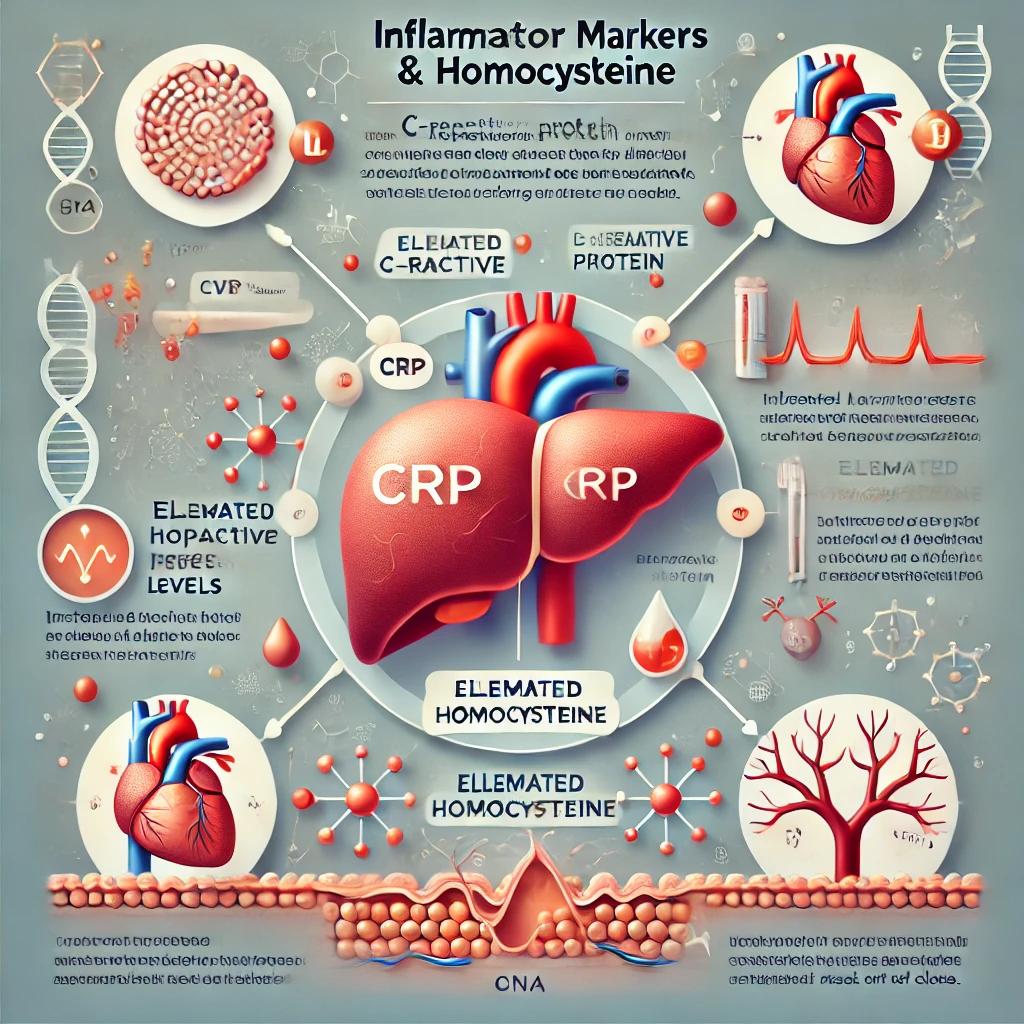Articles

Inflammatory Markers and Homocysteine
Everything you need to
know about inflammatory markers and homocysteine.
C-Reactive Protein
(CRP):
CRP is a protein
produced and secreted by liver cells. It is one of the most sensitive
inflammatory markers and is a key indicator of recurrent inflammation and
infections.
Where is CRP Found?
CRP is normally found
in small amounts in the blood serum of healthy individuals. However, its
concentration rises quickly during inflammation or cell death.
A normal CRP level in blood tests is typically less than 10 mg/L,
which is considered the healthy range.
CRP levels also tend to increase in individuals who are overweight or obese.
Why is CRP Testing
Important?
Studies have shown
that inflammation plays a significant role in the development of many chronic
diseases, including cardiovascular disease and type 2 diabetes.
CRP contributes to the accumulation of inflammatory cells in artery walls
and the formation of blood clots, which increases the risk of heart
disease in particular.
What is
Homocysteine?
Homocysteine is a
naturally occurring amino acid in the body, but it is not used to build
proteins. It is synthesized internally and is typically found in the blood after
consuming protein-rich foods, especially red meat.
Why is Homocysteine
Testing Important?
High levels of
homocysteine can damage the inner lining of arteries, promoting blood
clotting. This may increase the risk of:
- Coronary artery disease
- Heart attacks
- Blood clots
- Strokes
For this reason, it is
recommended to keep homocysteine levels below 15 micromoles per liter in
the blood serum.
How Does Diet
Affect CRP and Homocysteine Levels?
Studies have shown
that following the Mediterranean Diet significantly reduces inflammatory
markers, thereby lowering the risk of heart disease.
This diet is
characterized by:
- High intake of olive oil, vegetables,
fruits, plant-based proteins, whole grains, legumes,
nuts, and fish
- Moderate intake of poultry and low-fat
dairy products
- Low intake of red meat
- Srikantiah, Chandrashekara. (2014). C – reactive protein: An inflammatory marker with specific role in physiology, pathology, and diagnosis. Internet Journal of Rheumatology and Clinical Immunology. 2. 10.15305/ijrci/v2iS1/117.
- Glen L. Hortin, MD, PhD, Homocysteine: Clinical Significance and Laboratory Measurement, Laboratory Medicine, Volume 37, Issue 9, September 2006, Pages 551–553, https://doi.org/10.1309/93G5JG1BF44N65BQ
